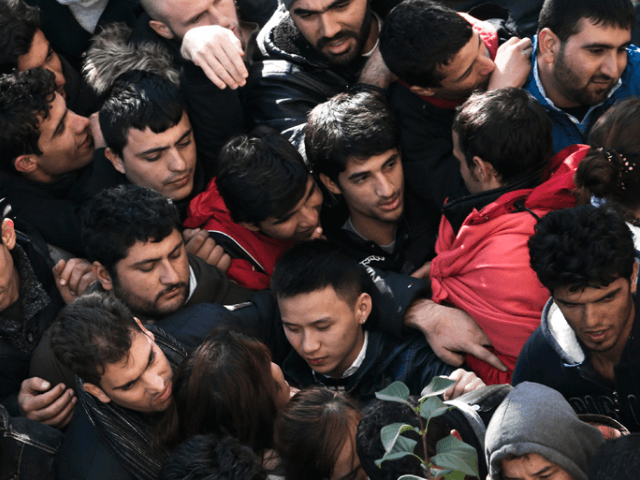The head of one of Europe’s leading economic think tanks has called on Germany’s government to scrap the minimum wage and raise the country’s retirement age in order to cope with the huge influx of migrants now underway. Only by introducing such measures can the enormous costs associated with the flow be borne, he said.
Germany will spend €6 billion on caring for the 800,000 migrants expected to arrive in the country by the end of this year. Last year just 400,000 people came to Germany, so the country has been hit hard financially as well as socially by the unexpected jump in costs.
In order to avoid piling debts up on to later generations, the Ifo institute, based in Munich has called on the government to raise the retirement age from 63 to 70, pointing out that as the population ages we’re all likely to be working longer anyway.
“It is not a matter of playing off the pensioners against the refugees,” the institute’s budget expert Niklas Potrafke said, in response to criticism of the plan. “Extending the age of retirement won’t affect current pensioners,” he explained, adding “in the course of demographic change we would anyway all work a bit longer.”
The Ifo Institute’s president, Hans-Werner Sinn, is also outspoken on the issue, insisting that Mr Potrafke is right. With more and more people flocking to Germany, Mr Sinn said “we’d better raise the retirement age to feed them”
A strong advocate of bringing migrant children into the education system, and adults into paid employment as soon as possible in order to fully integrate them into German society, Mr Sinn argued that elder Germans would also be able to play a useful role in educating the newcomers in the ways of German life.
And he argued that the influx of migrants should be the catalyst for social reform, starting with abolition of the minimum wage. “We should take advantage of the influx of refugees as an opportunity for a new Agenda 2010”, he said, referring to widespread reforms enacted in 2003 – 2005 which aimed to boost the German economy. Income taxes were cut significantly, as were unemployment and pension benefits.
By abolishing the minimum wage, Mr Sinn reasoned that more businesses will be able to employ more unskilled migrant workers, ensuring that they are integrating into society and not a burden on the German welfare system. “Most business models for low-skilled workers will only be profitable if the wage for unskilled labour falls,” he said.
Yet these are quick fixes for a problem already upon Germany. The migrants who have arrived are only the beginning, Mr Sinn warned: “What the German Government has not considered is that those who have managed to come to Germany will have immediately used their mobile phones to send a message to their home countries, putting into motion a new flow of migrants.
“The more you receive, the more set in motion. Parts of the UN refugee camps in Syria are, in this way, shifting to Germany.”
In the longer term, Europe, and the individual European nations, must work harder to secure their own borders and stem the flow of people coming in, he insisted. “A world without boundaries, where everyone takes what he wants, cannot work. It’s a Wild West party with all that goes with it.”
Follow Donna Rachel Edmunds on Twitter: Follow @Donna_R_E or e-mail to: dedmunds@breitbart.com

COMMENTS
Please let us know if you're having issues with commenting.